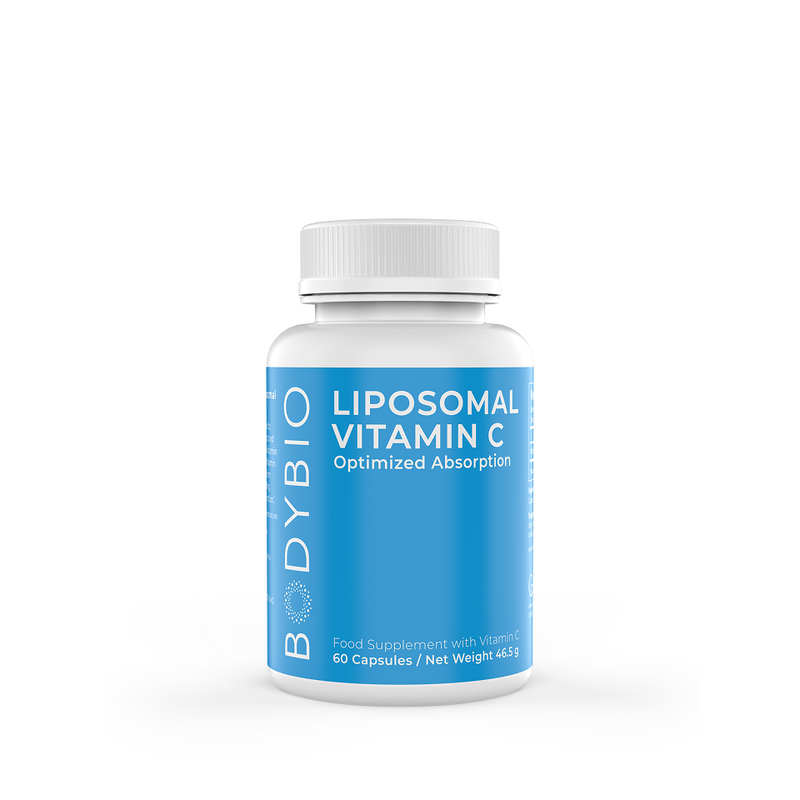Can You Take Vitamin C and D Together?
Key Takeaways:
- Vitamin C and D support different, essential roles in the body.
- Taking them together is safe and may offer synergistic benefits.
- Combining these vitamins doesn’t interfere with absorption.
- Timing and form matter for optimal absorption and effectiveness.
- Side effects are minimal when taken within recommended dosages.
Table of Contents:
The Role of Vitamin C in the Body
Vitamin C, also known as ascorbic acid, is a water-soluble vitamin critical for collagen synthesis, wound healing, and antioxidant protection. It supports immune function by stimulating the production and function of white blood cells, and it helps the body absorb iron from plant-based sources.
Beyond immune support, vitamin C plays a vital role in protecting cells from oxidative stress — something that's increasingly relevant in today's toxin-heavy world. The body can't store vitamin C, so consistent intake from food or supplements is necessary.
Research highlights:
Studies show that vitamin C supplementation may reduce the duration of common colds and support endothelial function, which is vital for cardiovascular health (Carr & Maggini, 2017).
The Role of Vitamin D in the Body
Vitamin D is a fat-soluble vitamin and hormone that's essential for calcium absorption, bone health, and immune modulation. It helps regulate mood, inflammation, and even gene expression.
Unlike vitamin C, your body can synthesize vitamin D from sunlight, but deficiencies are common—especially during winter months or for those with darker skin, who live at higher latitudes, or who wear daily sunscreen.
Research highlights:
Vitamin D has been shown to reduce the risk of respiratory infections and support immune resilience. In some studies, low vitamin D levels have been associated with increased risk for autoimmune conditions and depression (Martineau et al., 2017; Holick, 2007).
Do Vitamin C and D Work Well Together?
Yes — vitamin C and D can be taken together, and doing so may offer complementary benefits. Both are involved in immune function, but they act on different pathways. Vitamin C supports innate immunity and acts as an antioxidant, while vitamin D modulates the immune response and reduces chronic inflammation.
Together, they create a broader foundation for immune support and cellular resilience. This is particularly relevant when addressing seasonal illness, recovering from infection, or supporting the body through toxin exposure.
Synergy in action:
Vitamin C protects immune cells from oxidative stress during infection, while vitamin D helps those same immune cells respond appropriately to pathogens.
Does Taking Vitamin C Affect Vitamin D Absorption?
No — taking vitamin C does not negatively impact vitamin D absorption. In fact, since they are absorbed via different mechanisms (water-soluble vs. fat-soluble), there is no known interference when taken at the same time.
Some studies suggest that antioxidant nutrients like vitamin C might even protect fat-soluble vitamins like vitamin D from oxidative damage during digestion, though more research is needed in this area.
That said, absorption of vitamin D can be enhanced by taking it with a meal that contains fat, while vitamin C is best absorbed on an empty stomach. This means that while they can be taken together safely, you might optimize absorption by tailoring the timing to your personal needs.
Best Way to Take Vitamin C and D for Maximum Benefits
Here are a few best practices for combining these vitamins:
-
Timing: While vitamin C is best on an empty stomach and vitamin D is fat-soluble, you can still take them together if it simplifies your routine. Consistency is more important than timing for most people.
-
Forms: Choose high-quality, bioavailable forms. Liposomal Vitamin C is gentle on the gut and is absorbed better in the body than regular vitamin C. Vitamin D3 (cholecalciferol) is the most effective form of vitamin D.
-
Pair with fat: Take vitamin D with a meal containing healthy fats (like Balance Oil or phospholipids like BodyBio PC) for best absorption.
-
Monitor levels: Especially with vitamin D, testing your blood levels (25-hydroxyvitamin D) can guide proper supplementation.
At BodyBio, we take absorption seriously. That's why our products prioritize bioavailability and cellular support — so the nutrients you take don't just pass through your system, but actually get to work where they're needed most.
Are There Any Side Effects of Taking Vitamin C and D Together?
Generally, both vitamins are well-tolerated and safe when taken within recommended dosages:
-
Vitamin C: If you are taking convention Vitamin C, doses over 2,000 mg per day may cause gastrointestinal upset, such as cramps or diarrhea. If you take a liposomal C like BodyBio's Liposomal Vitamin C, then you can take higher doses without any gastric distress.
-
Vitamin D: Toxicity is rare but can occur with very high doses (over 10,000 IU/day long-term) and may lead to calcium imbalances so we always recommend taking it with Vitamin K2 to offset this imbalance.
If you're taking other medications or have underlying conditions, it's always smart to consult your healthcare provider before starting a new supplement routine.
Final Thoughts on Combining Vitamin C and D
So, can you take vitamin C and D together? Absolutely — and you might even be better off for it. These two powerhouse vitamins support different but complementary aspects of health, from immunity and inflammation to bone strength and antioxidant protection.
There's no evidence of negative interaction, and taken together, they can form a key part of a proactive wellness routine — especially when your goal is to strengthen your body at the cellular level.
If you're focused on whole-body resilience, these are two nutrients you don't want to overlook. And when paired with healthy fats and other cell membrane supporters like phospholipids, your body can truly start to thrive from the inside out.
Carr AC, Maggini S. Vitamin C and Immune Function. Nutrients. 2017 Nov;9(11):1211.
Martineau AR et al. Vitamin D supplementation to prevent acute respiratory infections: systematic review and meta-analysis. BMJ. 2017;356:i6583.
Holick MF. Vitamin D deficiency. N Engl J Med. 2007 Jul 19;357(3):266–81.








